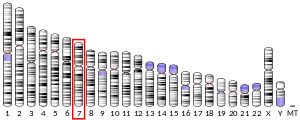| PKD1L1 | |||||||||||||||||||||||||||||||||||||||||||||||||||
|---|---|---|---|---|---|---|---|---|---|---|---|---|---|---|---|---|---|---|---|---|---|---|---|---|---|---|---|---|---|---|---|---|---|---|---|---|---|---|---|---|---|---|---|---|---|---|---|---|---|---|---|
| Identifiers | |||||||||||||||||||||||||||||||||||||||||||||||||||
| Aliases | PKD1L1, PRO19563, polycystin 1 like 1, transient receptor potential channel interacting, HTX8 | ||||||||||||||||||||||||||||||||||||||||||||||||||
| External IDs | OMIM: 609721 MGI: 2156538 HomoloGene: 51376 GeneCards: PKD1L1 | ||||||||||||||||||||||||||||||||||||||||||||||||||
| |||||||||||||||||||||||||||||||||||||||||||||||||||
| |||||||||||||||||||||||||||||||||||||||||||||||||||
| |||||||||||||||||||||||||||||||||||||||||||||||||||
| |||||||||||||||||||||||||||||||||||||||||||||||||||
| Wikidata | |||||||||||||||||||||||||||||||||||||||||||||||||||
| |||||||||||||||||||||||||||||||||||||||||||||||||||
Polycystin 1 like 1, transient receptor potential channel interacting is a protein that in humans is encoded by the PKD1L1 gene. [4]
Function
This gene encodes a member of the polycystin protein family containing 11 transmembrane domains, a receptor for egg jelly (REJ) domain, and a polycystin-1, lipoxygenase, alpha-toxin (PLAT) domain. The encoded protein may play a role in the male reproductive system. Alternative splice variants have been described but their biological nature has not been determined. [provided by RefSeq, Jul 2008].
References
- 1 2 3 GRCh38: Ensembl release 89: ENSG00000158683 - Ensembl, May 2017
- ↑ "Human PubMed Reference:". National Center for Biotechnology Information, U.S. National Library of Medicine.
- ↑ "Mouse PubMed Reference:". National Center for Biotechnology Information, U.S. National Library of Medicine.
- ↑ "Entrez Gene: Polycystin 1 like 1, transient receptor potential channel interacting". Retrieved 2017-10-16.
Further reading
- Rose JE, Behm FM, Drgon T, Johnson C, Uhl GR (2010). "Personalized smoking cessation: interactions between nicotine dose, dependence and quit-success genotype score". Mol. Med. 16 (7–8): 247–53. doi:10.2119/molmed.2009.00159. PMC 2896464. PMID 20379614.
This article incorporates text from the United States National Library of Medicine, which is in the public domain.
This article is issued from Wikipedia. The text is licensed under Creative Commons - Attribution - Sharealike. Additional terms may apply for the media files.

